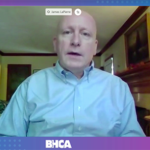Pandemic raises stakes on debit card issue
The 10th anniversary of the Dodd-Frank Act came in the midst of the pandemic, when debit card usage was surging. The Durbin Amendment to Dodd-Frank requires card issuers to enable cards to operate on at least two unaffiliated debit networks. Sen. Richard Durbin, (D-Ill.) recently wrote to the Federal Reserve about his concern that the largest card issuers are ignoring the rule at a time when card usage is skyrocketing, resulting in higher fees for merchants and, therefore, consumers. [Continue]









